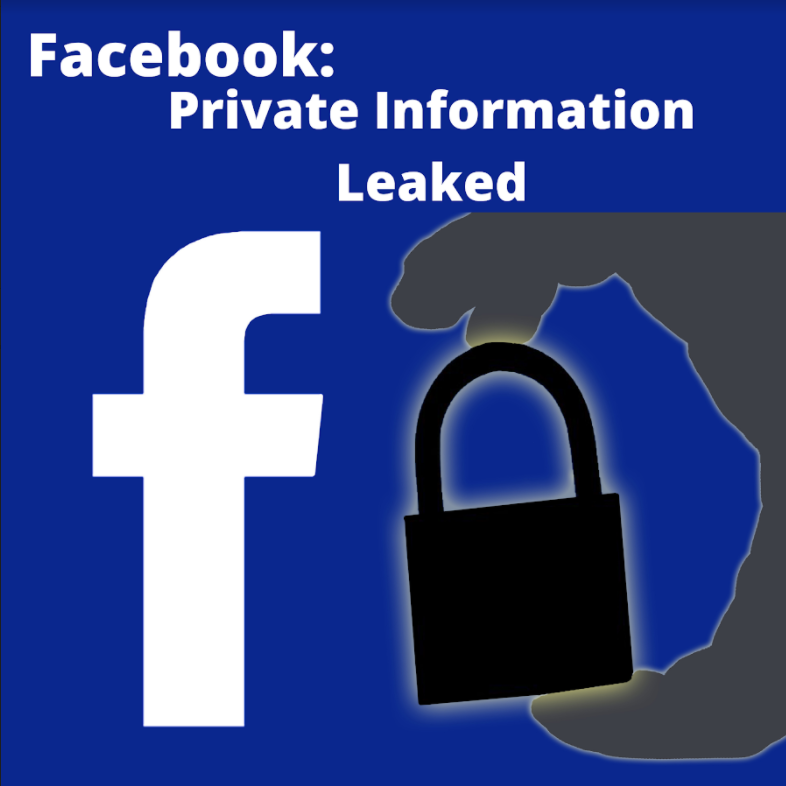Facebook Leaked Over 533 million People’s Private Information
April 18, 2021
In the first few weeks of April, Facebook, the popular social networking service, has leaked the private information of over 533 million users, causing widespread fear.
Facebook CEO Mark Zuckerberg has received significant backlash due to the incident. Many users have had their phone numbers, full names, birth dates, relationship statuses, hometowns, locations, email addresses and biographical information released. The information, taken from 106 different countries, includes 32 million Facebook users from the U.S.

The incident first began in 2019 when Facebook chose to store the information of people who had previously interacted with the app. Due to the malfunction, that information was leaked all over the internet. For people whose information was leaked, they now face the threat of cyber criminals accessing this information. Cyber criminals could potentially use the personal information to impersonate or scam others.
Alon Gal, the chief technology officer of the cybercrime intelligence firm Hudson Rock, has said that not much can be done about the matter because all the information is already out in the open. He added that Facebook could potentially notify those whose private information was leaked. Gal has no power over what Facebook does, so he does not know what the company has in store for those who had their information leaked.
To determine whether an account has been compromised, visit https://haveibeenpwned.com/, a site created by an Australian web security consultant. Type in the email address or phone number associated with the account, and the site can determine if any personal information was exposed from the leak. To protect an account, enable two-factor authentication. This allows the owner of the account to confirm a login attempt coming from an unfamiliar browser or mobile phone.
After the incident, Facebook has stated that they choose not to warn those who have had their information leaked.











